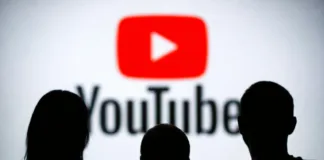Carlos Taylhardat | September 15, 2025
As Washington and Beijing agree on a framework to shift TikTok’s U.S. ownership, parents ask: will American control change the algorithm shaping their children’s lives?
A Tragedy at 16: Why Parents Want Oversight
In March 2022, 16-year-old Chase Nasca of Long Island died by suicide. His parents allege that TikTok’s algorithm “flooded his ‘For You’ feed with thousands of suicidal videos,” even though he had searched for motivational content.
“Chase was searching for uplifting and motivational content… but TikTok, by design, directed thousands of suicidal videos into his feed.” (People)
For families like Nasca’s, TikTok isn’t just a dance app, it’s an unregulated system with the power to shape moods, behaviours, and even destinies. It is these stories that fuel public pressure on Washington to demand checks and balances for TikTok.
Context: The Trump–Xi Framework Deal
On September 15, 2025, Treasury Secretary Scott Bessent announced that the U.S. and China had reached a “framework agreement” for TikTok’s U.S. operations. The deal, finalized in Madrid, is expected to be signed off by President Trump and President Xi in the coming days. (Politico)
The agreement stems from the Protecting Americans from Foreign Adversary Controlled Applications Act (2024), which required ByteDance to sell or face a nationwide U.S. ban. With 170 million American users, banning TikTok outright was politically risky. The compromise: a forced sale of TikTok’s U.S. operations to American buyers.
Narrative One: Security and Safety Through the U.S. Control
Advocates for the deal argue that ownership transfer is about two things:
- National Security – U.S. officials, including FBI Director Chris Wray, warn that ByteDance could be compelled under Chinese law to hand over American data or allow algorithm manipulation. (Time)
- Youth Protection – Cases like Chase Nasca’s highlight algorithmic risks. Psychologist Jonathan Haidt notes that Douyin (China’s version of TikTok) promotes educational and patriotic content while limiting screen time for minors, while U.S. TikTok prioritizes engagement, often likened to “digital junk food.” (Business Insider)
For supporters, American ownership means greater transparency, algorithm audits, and accountability. They argue it’s a necessary first step to prevent future tragedies.
Narrative Two: Overreach, Market Power, and Unanswered Questions
Critics see the deal differently:
- Market Politics – Forcing ByteDance to sell could be viewed as protectionism, transferring a global asset to American corporations under threat.
- Free Speech Risks – Legal experts warn of First Amendment challenges if content moderation rules tighten too far.
- Limited Impact – U.S. platforms like Instagram and YouTube use similar addictive algorithms. Ownership alone won’t change design incentives.
As one industry analyst put it: “The U.S. isn’t banning algorithmic manipulation — it’s just shifting who profits from it.”
Narrative Three (Silent Story): Youth at the Crossroads
For teenagers, the geopolitics matter less than the experience of scrolling. Whether TikTok is owned by Beijing, Boston, or Bentonville, the platform’s design still thrives on endless engagement loops.
A recent study found that harmful content exposure was nearly identical for teen and adult accounts, suggesting safety filters don’t work. (arXiv)
The silent truth is this: unless the algorithm itself changes — prioritizing well-being over watch time — American ownership may not shield young people from the very risks that fuel parents’ outrage.
Who Could Take Over TikTok?
Speculation on buyers includes:
- Microsoft – with cloud and AI capacity.
- Oracle – already housing TikTok U.S. data under “Project Texas.”
- Walmart – eager to integrate TikTok’s e-commerce power.
- Private Equity Firms – like Blackstone or KKR, though political optics are uncertain.
Valuations estimate TikTok’s U.S. arm could be worth $100 billion or more, making it one of the largest forced corporate transfers in history.
Key Takeaways
- Framework deal reached: Trump and Xi agree on terms to transfer TikTok’s U.S. ownership.
- Candidates to buy: Microsoft, Oracle, Walmart, and private equity groups.
- Why it matters: Security concerns (data access), youth risks (algorithmic harm).
- Debate: Is this about protecting teens and data — or political theater and market power?
- Silent story: Without redesign, TikTok’s addictive algorithm remains unchanged.
Questions This Article Answers
- Why did the U.S. force ByteDance to sell TikTok?
To address national security concerns and reduce risks of harmful algorithmic influence on American youth. - Who might buy TikTok’s U.S. operations?
Microsoft, Oracle, Walmart, and private equity firms are prime contenders, with valuations above $100 billion. - How is TikTok different in China vs the U.S.?
Douyin enforces time limits and promotes educational content; U.S. TikTok prioritizes engagement, often criticized as addictive. - What triggered parental concern about TikTok?
Cases like Chase Nasca’s death raised alarms about the platform’s influence on vulnerable teens. - Will U.S. ownership make TikTok safer?
Possibly, if paired with algorithm audits and transparency. Critics argue ownership alone won’t fix design incentives.
Related Reading
- The Clock Is Ticking: TikTok, Truth, and the Future
- News by Algorithm
- Parenting with Mental Health Support



[…] Trump and Xi Strike TikTok Deal: Can American Control Fix the Algorithm Problem? […]